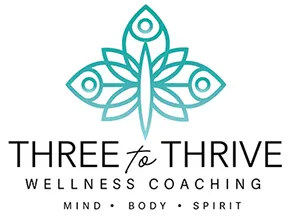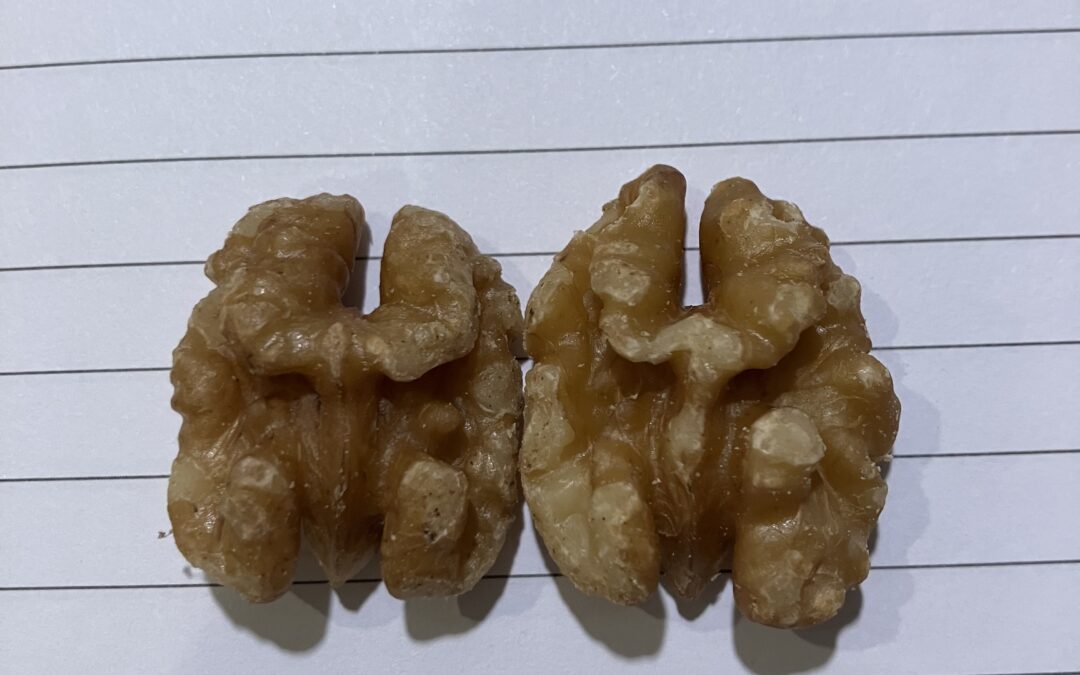Welcome to a place of encouragement and inspiration on your path to well-being. You deserve it!
(Enjoy the picture of my walnut art. I always thought it was fascinating that a food can look like the part of the body it nourishes.)
NEURO
Have you ever walked into a room and totally forgotten what you went there for? When was the last time you forgot a familiar person’s name? Do you ever lose track of your thoughts mid-sentence? Do you feel ‘scattered’ or ‘foggy’? What are signs of dementia vs temporary illness, extreme stress, lack of sleep or hormonal changes? We all worry about signs of dementia (especially those with a familial history) but the good news is that we can take positive action at any moment in our lives.
Today, there are nearly 7 million Americans living with Alzheimer’s. For someone my age, (45-55) the lifetime risk for Alzheimer’s is 1 in 5 for women and 1 in 10 for men. www.alz.org. However, the brain changes that cause Alzheimer’s are thought to begin 20 years or more before symptoms start, which suggests that there may be a substantial window of time for adoption of lifestyle changes to slow (or even prevent) the progression of the disease. Early detection and diagnosis of Alzheimer’s and other types of dementia offer the best opportunity for care and treatment. If you or your loved ones notice any of these signs, please schedule an appointment with your doctor. https://www.alz.org/alzheimers-dementia/10_signs
As many as 40% of dementia cases worldwide may be attributable to modifiable risk factors. In addition, brain function can be affected by any number of stress factors including hormonal changes, lack of sleep, burnout, or multi-tasking. Whatever your age or stage of life, now is the time to take charge of your brain health.
Neuroscientists Dean and Ayesha Sherzai (Teamsherzai.com) found that adding a few healthy lifestyle habits can significantly decrease your chance of developing the disease. They developed an acronym for helping us remember how to care for our brains- NEURO. Ensuring good Nutrition, Exercise, Unwinding, Restoring, and Optimizing your brain can battle the effects of this degenerative disease as well as optimizing your current brain function.
- (N)Nutrition has been linked to as much as a 53% potential reduction in Alzheimer’s. As much as you are able, eat a whole food, plant forward diet. Avoid ultra processed foods!
- (E)Exercise has been shown to reduce the risk of developing Alzheimer’s by as much as 40%. Just a short brisk walk improves the neural connections with the hippocampus (part of the brain improving concentration and memory).
- (U) Unwinding (stress management) helps avoid shrinkage of the brain by 30%. Anxiety is at an all-time high. Consider moderating the use of your electronic device, practice mindfulness, list your gratitudes, or simply notice the beauty of nature.
- (R)Restoring proper sleep can reduce dementia risk by 70%. Make sleep a priority. Work on the quality, quantity, regularity, and timing. If you experience extreme difficulty with sleep, get checked out by your physician. Surprisingly, counseling can be very helpful for this issue.
- (O) Optimizing mental and social activity reduces Alzheimer’s risk by 48%. Learn a new skill (take a class, get creative, pick up that old guitar- listening to or playing music connects all areas of the brain). Deepen your community and personal connections.
It is a fallacy that brain health is separate from physical or emotional health. What is good for the brain is also good for the body. Consider the above strategies to optimize all areas of health to live your best life! People who adopt a wholistic approach to health early on (in their 40’s and 50’s) to prevent dementia are most likely to see the preventative benefits, but research shows it is never too late either. Any action taken now, no matter your age, is beneficial.
The thought of developing dementia is terrifying. And prevention is always a tough idea, never truly knowing if you are doing enough. We do not live in a society where an investment for future health outcomes is prioritized. But the idea of establishing healthy habits to optimize our brain function now seems like an easier concept to embrace.
Dealing with peri-menopause changes in my brain and body while my senior years are right around the corner makes these pillars of health really speak to me. I hope they put things into perspective for you too!
HELPFUL DEFINITIONS-
“Cognitive decline” refers to changes in the ability to think that happen as people age. Some changes are a normal part of getting older, but you can take steps to slow that decline. More significant decline or severe changes are not normal and may be a sign of Alzheimer’s disease or other dementias.
“Dementia” is a general term used to describe problems with thinking and memory that are severe enough to interfere with a person’s daily life. Alzheimer’s is the most common cause of dementia but there are several kinds of dementia. Dementia is not a normal part of aging.
Alzheimer’s disease (AD) is a chronic neurodegenerative disease that usually starts slowly and gradually worsens over time, disrupting memory and other vital mental functions.
Resources:
2022 Alzheimer’s Association 24/7 HELPLINE 800.272.3900. https://www.alz.org/
https://thebraindocs.com/ Drs. Dean and Ayesha Sherzai
May your brain be well, -Trish
Subscribe to the newsletter to receive fresh weekly posts right into your inbox. Use the contact form and ask to be included or for additional resources.

